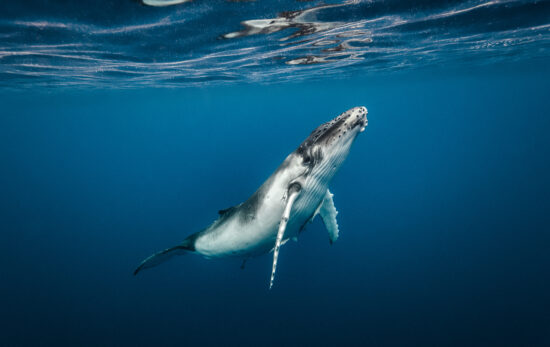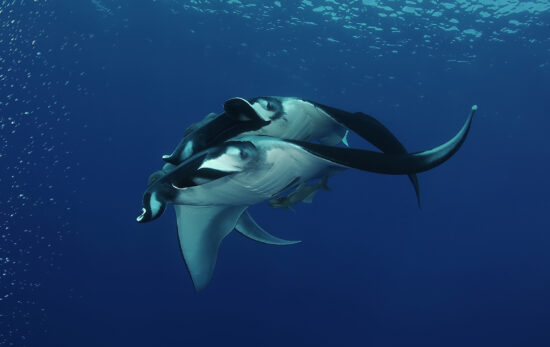Staring into the depths and beauty of our water-planet, many ocean lovers may not realize that the answer to “where did octopuses come from?” might lie in the exact opposite direction of where we’re looking. While Darwinism would have you believe that life was created from the primordial soup, another theory—panspermia—maintains the belief that certain aspects of life and evolution may have developed due to “seeds” of matter that came to Earth from other planets.
Before you laugh, just keep in mind that scientists estimate there are more than 100 billion planets within the Milky Way Galaxy and a possible 100 billion galaxies in the universe. That’s 1022 planets that could potentially hold life. In 2018, a group of 33 scientists published a paper purporting that the ancestors of the modern-day octopus arrived on Earth from one of these planet’s “seeds.” Here’s the evidence they presented for why these amazing marine animals actually came from space.
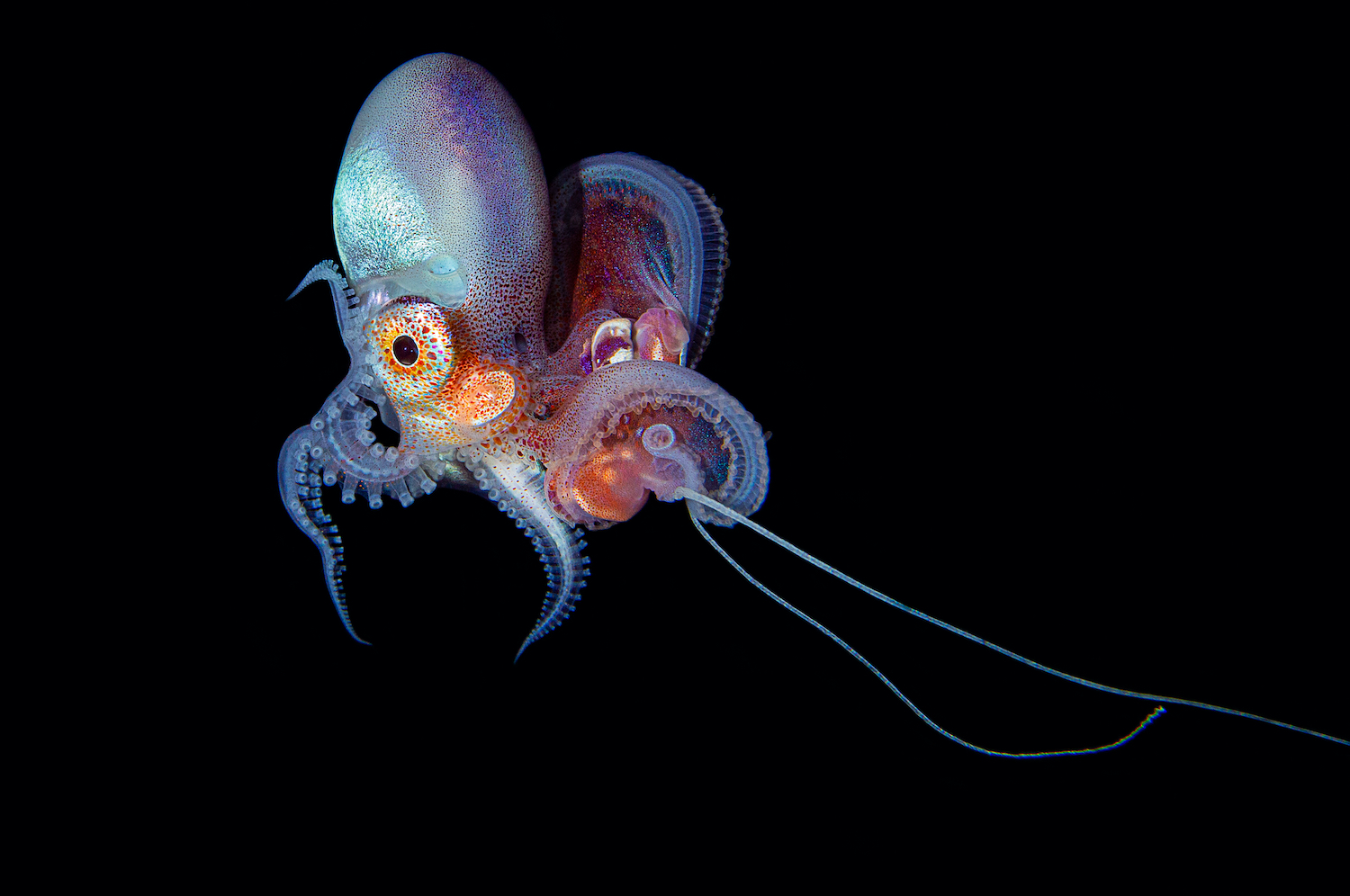
Accelerated Evolution
According to evolution, animals with the most adaptive characteristics will likely survive and reproduce more than disadvantaged animals, therefore passing down these traits which change and refine over time, creating evolution as we know it. But the octopus is a little different.
The main characteristics we associate with octopuses—large, non-centralized brain, camouflage abilities (check out this article that explains how they do this!), and flexible bodies—all appeared on the evolutionary scene quite suddenly during the Cambrian Explosion. Before then, octopus’ ancestors looked very different; most notably, they were shelled.
One of the earliest fossils from this era, called Nectocaris, shows a rather sudden divergence from this shelled creature to a non-shelled one. While scientists have been debating for the last 30 years what this fossil really means for cephalopods, it does cast doubt on the idea that they evolved like other animals.
Smartest of the Invertebrates
In addition to how they potentially evolved (or not), the modern octopus’ traits set it apart from any other animal. In terms of brain-to-body ratio (a factor helpful in determining intelligence), the octopus has the largest ratio of any invertebrate.
This intelligence goes far beyond simply moving through mazes or opening jars. Octopuses are some of the only invertebrates to use tools. They can wield external weapons, such as the way the blanket octopus carries tentacles from the Portuguese man o’ war. And they hunt collaboratively with other species, sometimes having to give their fish partners a good punch to keep them in line.
De-Centralized Intelligence
Octopuses may be the smartest of the invertebrates, but how their intelligence is distributed is also one of the key factors scientists use as evidence to support theories that octopuses are aliens or influenced by organisms from another planet.
Octopuses have one centralized brain, but the rest is spread through each arm. In fact, the majority of the octopus’ neurons don’t exist within its centralized brain. These neurons are distributed throughout the octopus’ eight arms and its suckers. Unlike human hands and fingers, octopus suckers can think and act on their own. Imagine if your fingertips had a life of their own!
In this article published by Oregon Public Broadcasting, scientist Dominic Sivitilli discusses how the long, separate evolution of octopuses (our nearest common ancestor was a worm that lived about 350 million years ago) has created an organism that is incredibly intelligent yet vastly different to humans. In essence, an octopus may be similar to what other forms of intelligence might look like if they evolved on a different planet.
Loads of Personality
Not only are octopuses smart, they’ve got personality and exhibit eerily human traits. Octopuses are often mischievous, such as this octopus that climbed out of its tank to give visitors a more personal greeting. There’s also Inky the octopus, who infamously escaped the National Aquarium of New Zealand in the dead of night by opening his own tank and slipping through a drain in the floor which led to the ocean. Other octopuses have been reported spitting jets of water to short out aquarium lights that were bothering them and even sneaking into other tanks for a midnight snack.
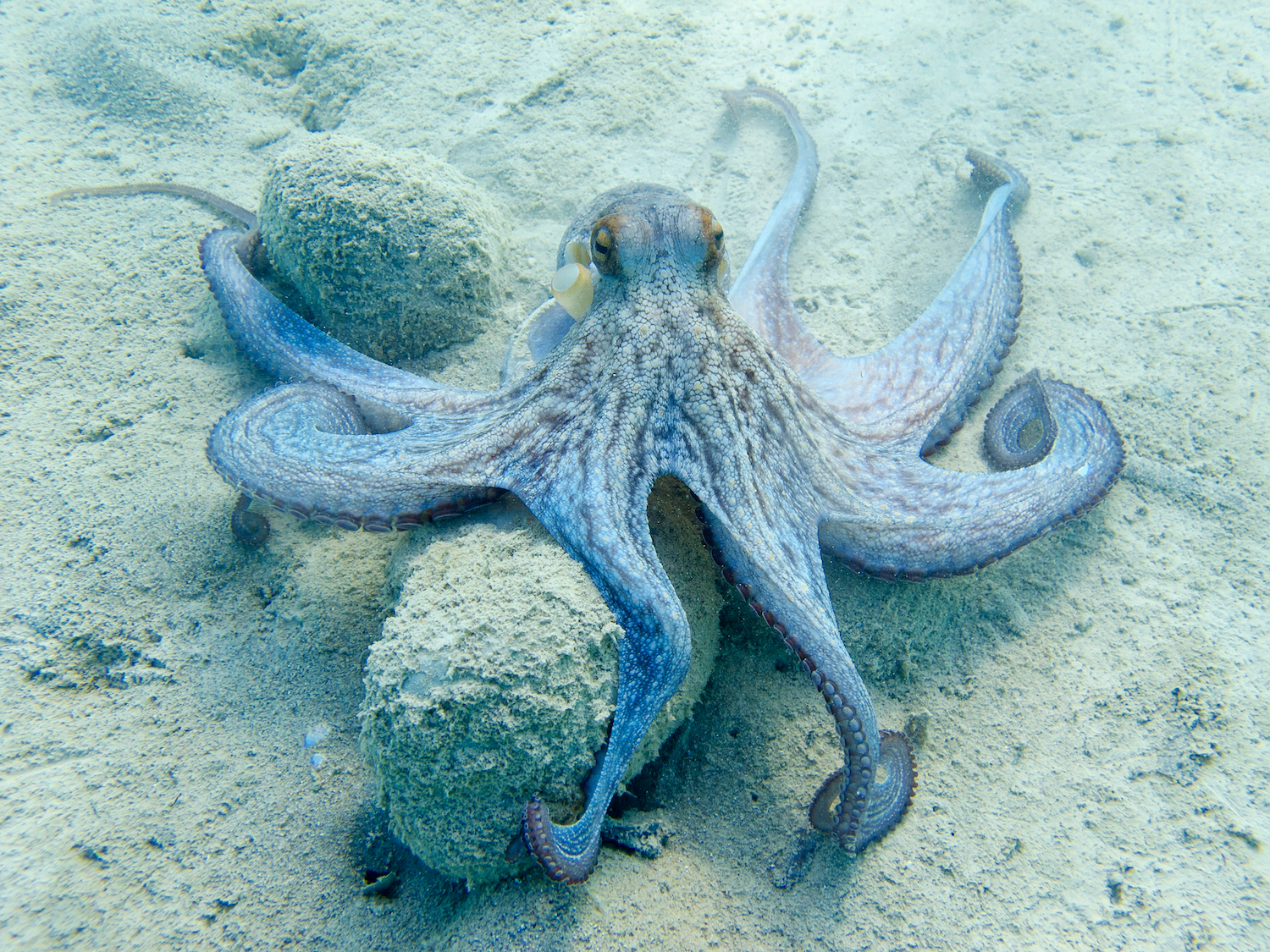
Complicated Biology
Perhaps the most alien part of an octopus is something we can’t even see. In their efforts to map the genomes of the entire animal kingdom, scientists have discovered some interesting facts. For one, the octopus has 33,000 protein-coding genes. As a comparison, humans have around 20,000. But despite its complexity (and therefore higher probability of mutation), octopus DNA has changed very little compared to the speed of change in other animals.
If DNA is what sets the instructions for life, RNA is what receives those messages and then makes things happen. Octopuses can bypass the need for genetic mutations and consciously give their RNA new instructions to alter their physiology pretty much immediately. While other species abandoned this ability hundreds of millions of years ago due to its overall detrimental effects, it seems this method is working out pretty well for the octopus.
Cosmic Powers
In addition to their intelligence, personalities, and complex biology, some octopuses seem to exhibit other-worldly powers. Between 2008 and 2010, Paul the octopus was regularly asked to pick the winners of FIFA games. Out of 14 predictions, Paul was correct 12 times, an 85.7% accuracy rate.
Hollywood likes to jump on board with the space-octopus theory as well. Octopus-like aliens have been portrayed in movies such as Arrival and Men in Black. Even the recent documentary, My Octopus Teacher, draws a comparison between octopuses and the cosmic world.
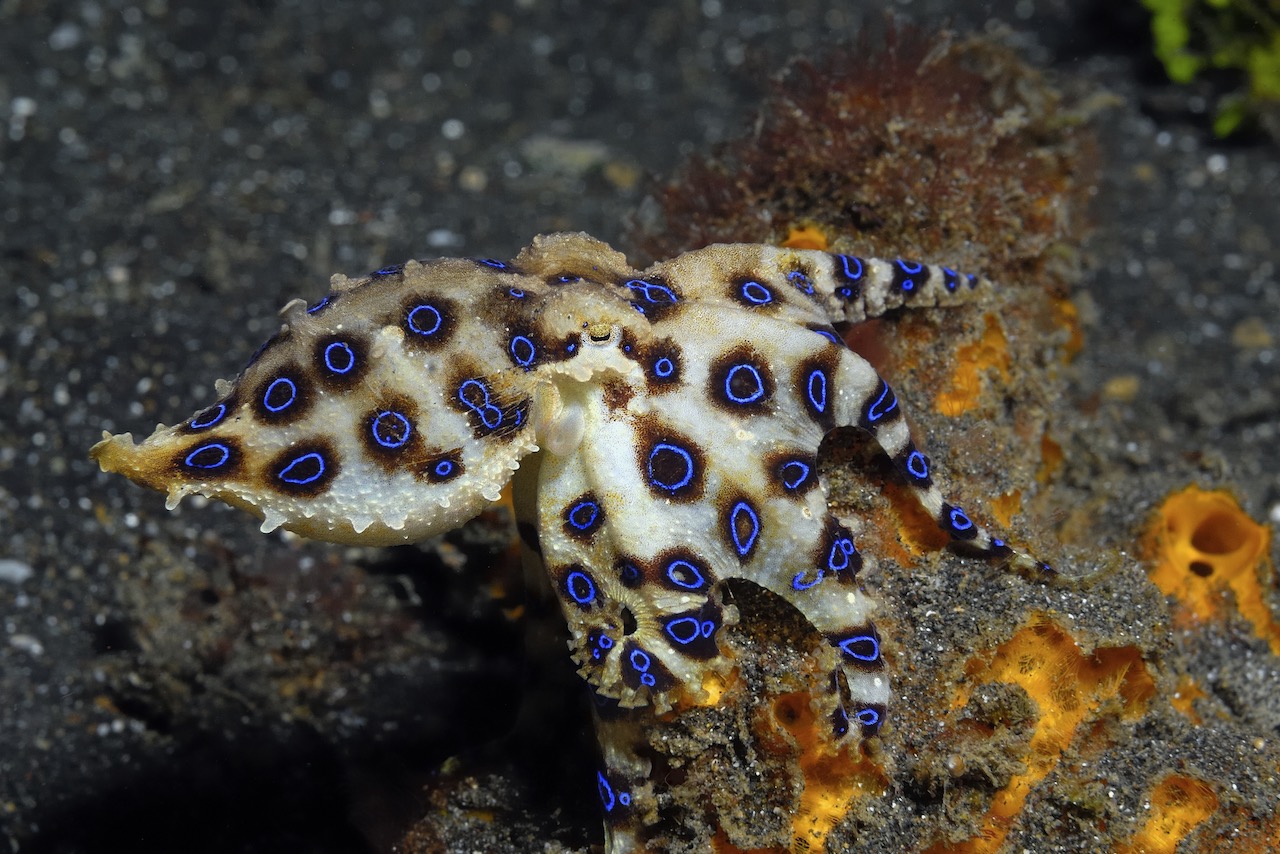
Other Fun Facts About Octopuses
Here are some more fun facts about octopuses. While these facts may not indicate that octopuses came from outer space, they definitely point toward alien-like qualities:
- When octopuses swim, their hearts stop beating. Because of this, they tend to spend more time “crawling” than swimming quickly.
- When octopuses are threatened, they release ink which dulls a predator’s sense of smell and blocks their sight. This defensive move gives the octopus time to escape or camouflage.
- If an octopus is unfortunate enough to get caught by a predator, it is able to escape by losing one of its arms, which it can regrow later on.
- Octopuses have extremely strong, beak-like jaws, and they also have venomous saliva.
- Female octopuses can lay up to 100,000 eggs. Females will guard their eggs until they hatch, during which time they rarely eat. At the end of the reproductive cycle, the life of the female ends.
Where to See Alien-Like Octopuses in the Wild
By now you should realize that octopuses are fascinating creatures. Whether you think they are descended from aliens or not, seeing an octopus is its natural habitat is a bucket-list experience everyone should have once in their lives. Here are a few of our favorite destinations for spotting these cephalopods.
- Hawaii, USA – Kona and Maui are both home to numerous dive sites and snorkeling areas where you can spot our eight-armed friends.
- Philippines – A great diving destination in general, the Philippines is also home to great areas for muck diving where rare species of octopuses can be encountered. If this interests you, consider a trip to Anilao or Dumaguete.
- Indonesia – One of the best diving destinations in the world, Indonesia is home to a wide variety of octopuses. Raja Ampat is a great choice for beautiful diving, or head to Lembeh to spot unique species, like the mimic octopus or wunderpus.
- Mexico – Blessed with both Caribbean and Pacific coasts as well as the Sea of Cortez, there are plenty of opportunities for spotting octopuses in Mexico. Cabo San Lucas and Cozumel are both hotspots.
- Australia – Yes, Australia is home to the Great Barrier Reef where you can see octopuses. However, divers can also spot cephalopods, including the blue-ringed octopus, further south along the east coast of the country.
- Greece – The rocky landscapes found underwater off the coast of Greece are prime habitat for octopuses. Check out Crete or Santorini if you’re interested in snorkeling with octopuses.
- Malta – In addition to clear waters and amazing wreck diving, Gozo in the country of Malta is also a prime destination for diving with octopuses.

So, Are Octopuses Aliens?
Despite all these amazing facts, it’s not truly likely they came from outer space. But, the history of science is littered with rejected theories later proven true. (We’re looking at you, Galileo.) And after all, many divers and ocean lovers who have encountered an octopus will tell you the experience was other-worldly. Aliens or not, we should all show our appreciation for the octopus.
Ready to dive in and see one of these incredible creatures? Become a PADI Open Water Diver to discover a whole new world.
Written by Jeanette Smith
